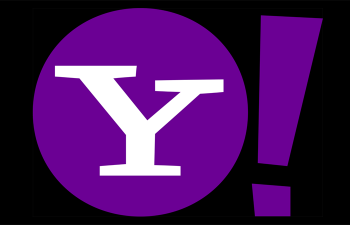A federal court judge in Chicago ruled that Yahoo must face a class action lawsuit alleging that the company sent unsolicited text messages to over a half million Sprint cellphone users in violation of the Telephone Consumer Protection Act. U.S. District Judge Manish Shah certified the class of Yahoo users for the mass text messaging sent to them in 2013 on the basis that they had commonality.
 The Telephone Consumer Protection Act (TCPA) covers a number of topics including telephone communications, automated telephone dialing systems (ATDS) and text messaging. The Yahoo SMS Messenger Service enables users with the ability to send instant messages to mobile phones using a computer or other device. When a message is sent by a user to a mobile phone number, Yahoo identifies whether that phone number has previously received text messages via its SMS service. If it is the first such occasion, Yahoo automatically sends a welcome text message. The case was brought by Rachel Johnson who claimed that she had received advertising spam from another Yahoo user, which triggered the Yahoo welcome text message.
The Telephone Consumer Protection Act (TCPA) covers a number of topics including telephone communications, automated telephone dialing systems (ATDS) and text messaging. The Yahoo SMS Messenger Service enables users with the ability to send instant messages to mobile phones using a computer or other device. When a message is sent by a user to a mobile phone number, Yahoo identifies whether that phone number has previously received text messages via its SMS service. If it is the first such occasion, Yahoo automatically sends a welcome text message. The case was brought by Rachel Johnson who claimed that she had received advertising spam from another Yahoo user, which triggered the Yahoo welcome text message.
If these welcome messages constitute unauthorized advertising, Yahoo could face damages of up to $1,500 per message if found to be a willful violation of the TCPA. With the number of potential plaintiffs exceeding 500,000, the potential damages could be substantial. Yahoo had argued unsuccessfully that the certifying a class could result in damages that were disproportionate to the act and that these types of claims were intended by Congress to be brought in local small claims courts, not in a federal court.
The case and docket number is Johnson et al v. Yahoo Inc, U.S. District Court, Northern District of Illinois, Nos. 14-02028, 14-02753
Do Welcome Text Messages Constitute Unlawful Advertising?
 The Telephone Consumer Protection Act (TCPA) covers a number of topics including telephone communications, automated telephone dialing systems (ATDS) and text messaging. The Yahoo SMS Messenger Service enables users with the ability to send instant messages to mobile phones using a computer or other device. When a message is sent by a user to a mobile phone number, Yahoo identifies whether that phone number has previously received text messages via its SMS service. If it is the first such occasion, Yahoo automatically sends a welcome text message. The case was brought by Rachel Johnson who claimed that she had received advertising spam from another Yahoo user, which triggered the Yahoo welcome text message.
The Telephone Consumer Protection Act (TCPA) covers a number of topics including telephone communications, automated telephone dialing systems (ATDS) and text messaging. The Yahoo SMS Messenger Service enables users with the ability to send instant messages to mobile phones using a computer or other device. When a message is sent by a user to a mobile phone number, Yahoo identifies whether that phone number has previously received text messages via its SMS service. If it is the first such occasion, Yahoo automatically sends a welcome text message. The case was brought by Rachel Johnson who claimed that she had received advertising spam from another Yahoo user, which triggered the Yahoo welcome text message.If these welcome messages constitute unauthorized advertising, Yahoo could face damages of up to $1,500 per message if found to be a willful violation of the TCPA. With the number of potential plaintiffs exceeding 500,000, the potential damages could be substantial. Yahoo had argued unsuccessfully that the certifying a class could result in damages that were disproportionate to the act and that these types of claims were intended by Congress to be brought in local small claims courts, not in a federal court.
The case and docket number is Johnson et al v. Yahoo Inc, U.S. District Court, Northern District of Illinois, Nos. 14-02028, 14-02753
- Legal Practice
- Communications & Media
- Jurisdiction
- US Federal
- Court of Law
- U.S. District Court
